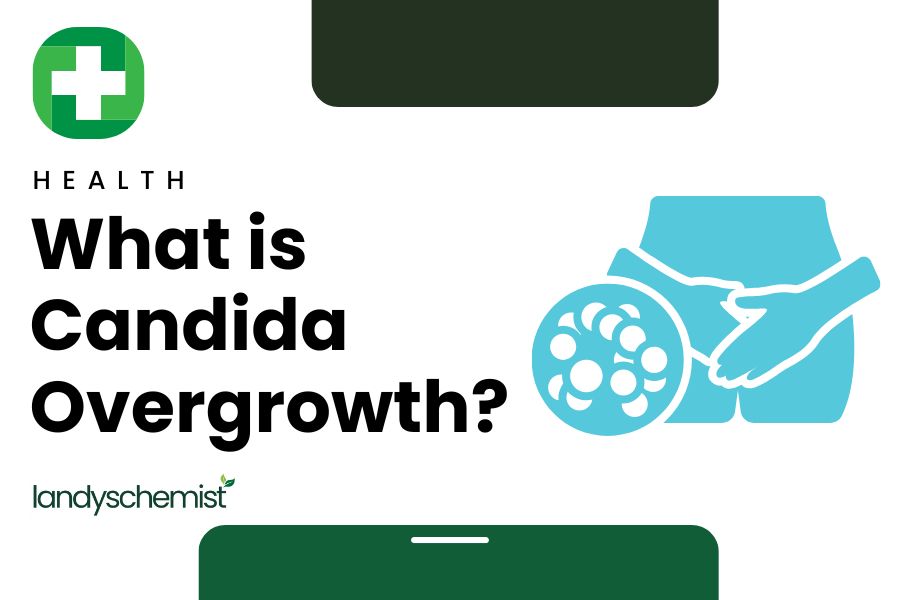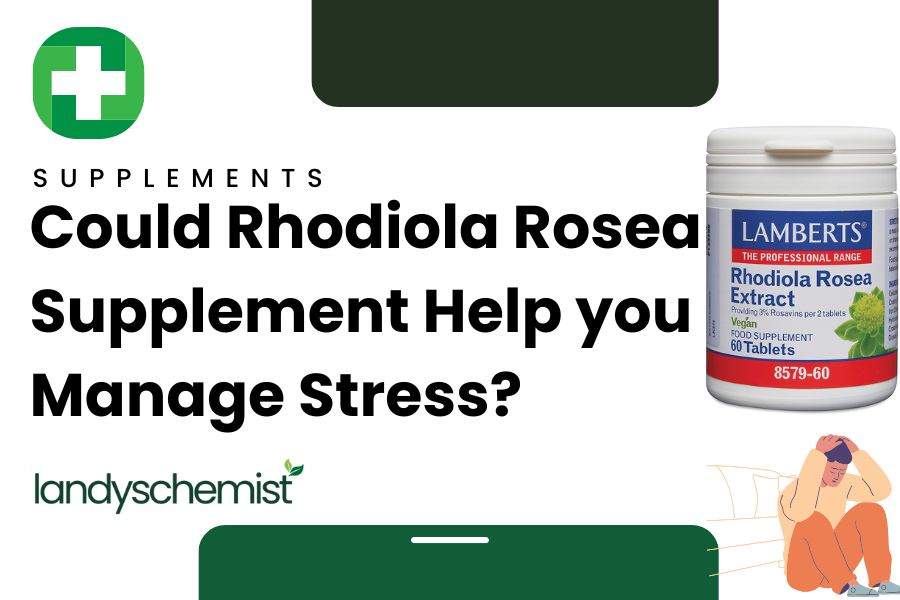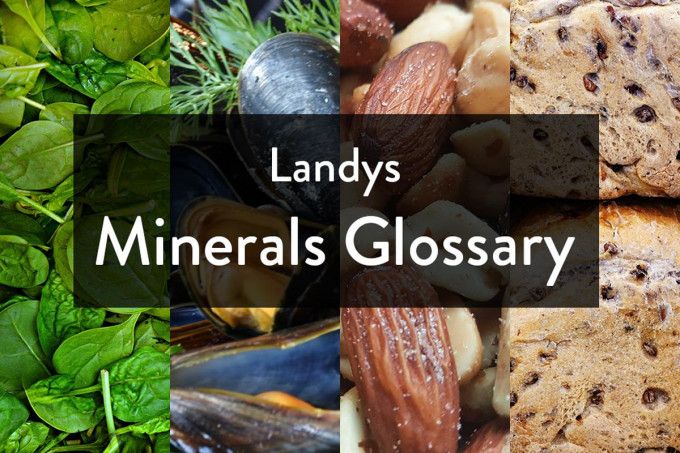
Why Do We Need Minerals? A Glossary From Landys
By Panasha Desai, Pharmacist (GPhC 2071387)
Like vitamins, minerals play a key role in the healthy function of our body. Minerals aid our immune, reproductive and nervous systems. They promote healthy blood flow, strong bones, teeth and nails, as well as supporting glands such as the thyroid.
Below we pinpoint some of the most common minerals found in our bodies, identifying why they are important, where you can find them in your diet and, should you need them, suggested supplements and their associated benefits and risks.
The minerals we consider in this article are:
CALCIUM
What Is It?
Calcium is an essential mineral to humans. Without it, we simply wouldn’t function. Calcium is crucial for building strong teeth and bones. It is also necessary to ensure that our blood clots properly and in the regulation of muscle contractions - including our heart beat!
Where Does It Come From?
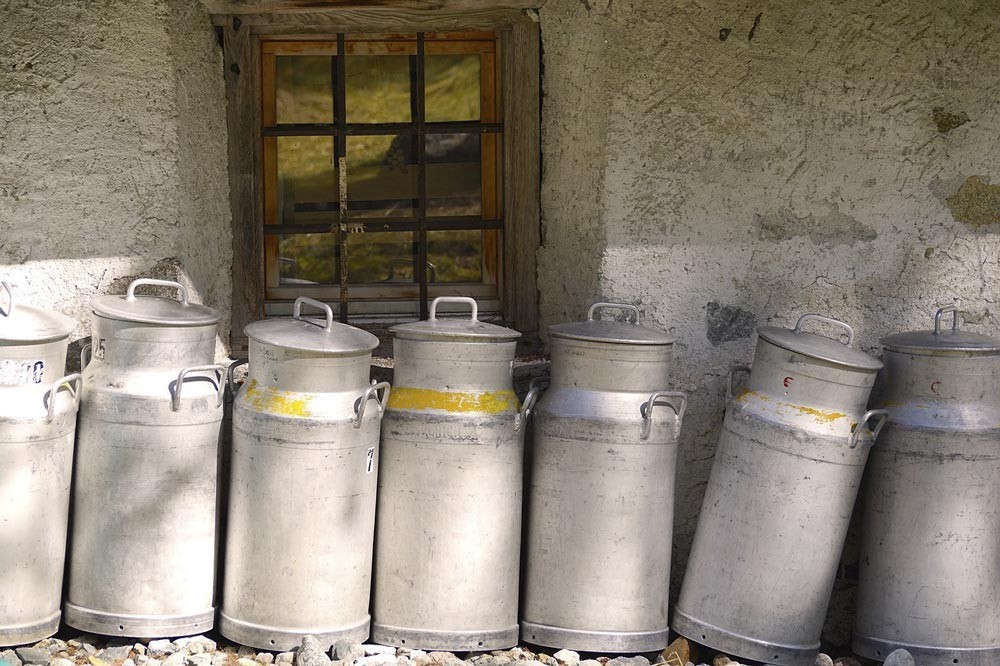
Good sources of Calcium come from the following foods:
- Dairy products
- Soya beans and soya products
- Nuts
- Broccoli, Cabbage and Okra
- Bread, and anything made with fortified flour
- Fish, where you eat the bones, such as sardines, anchovies and pilchards
How Much Do I Need?
The amount of calcium you need changes as you grow.
The amount of Calcium adults aged 19 to 64 need is:
- 700mg a day for men and women
Other Info:
A lack of calcium can lead to severe health conditions such as rickets in children, and osteomalacia or osteoporosis in older people.
LANDYS RECOMMENDS:
- Nature's Plus: Source of Life Garden; Organic Calcium 1000mg VegiCaps
- Lamberts: CalAsorb Calcium 800mg Tablets 180
- Viridian: Calcium Magnesium with Zinc powder
FURTHER INFORMATION:
You can learn more about the benefits of calcium in our article: The Benefits Of Calcium, Magnesium & Zinc
CHROMIUM
What Is It?
Chromium is a mineral that affects the way that insulin behaves in our bodies and the amount of energy we get from food and how our metabolic rate works.
Where Does It Come From?

You can get Chromium from eating the following foods:
- Broccoli
- Wholemeal bread and oats
- Lentils
- Potatoes
- Spices
- Meat
How Much Do I Need?
An adult body only needs a small amount of chromium, about 25 *MICROgrams per day. A microgram is 1,000 times smaller than a milligram (mg). The word microgram is sometimes written with the Greek symbol μ followed by the letter g (μg).
Other Info:
You should be able to get all the chromium you need by eating a balanced diet, but people do take supplements to help glucose control and increase muscle mass. There is little knowledge around the use of chromium supplements and you should take them with caution
LANDYS RECOMMENDS:
- Terranova: Chromium 200ug Complex Vegicaps 100
- Pharmanord Bio-Chromium 100mcg Tablets 60
- Solgar Chromium 500ug Vegetable Capsules 60
FURTHER INFORMATION:
You can learn more about the value of chromium for your health and in weight loss in our article: Chromium: Weight Loss & Health Benefits Of Chromium Picolinate
COPPER
What Is It?
Copper is a mineral that plays a variety of roles in our body’s functions. It helps to produce red and white blood cells as well as acting as a prompt to the release of iron to form haemoglobin. It is also important in childhood - promoting growth, brain development, a strengthened immune system and strong bones.
Where Does It Come From?

We can get copper from:
- Shellfish
- Nuts
- Offal
How Much Do I Need?
According to the Government, the amount of copper adults between 19 and 64 need is:
- 1.2 mg a day for men and women
The amount of copper that we need changes throughout our lifetime, use the government’s dietary recommendations to get it right for you and your family.
Other Info:
If you take copper supplements you shouldn’t take more than 1mg a day as taking high doses of copper can cause tummy ache, sickness, diarrhoea and damage to the liver and kidneys.
LANDYS RECOMMENDS:
FURTHER INFORMATION:
We bust the myths and share the real benefits of copper for a healthy life in: Why We Need Copper: Benefits & Myths
IRON
What Is It?
Iron is a mineral crucial to the production of red blood cells, which carry oxygen around the body. If you don’t have enough iron, you will feel a strong sense of fatigue, often resulting in anemia.
Where Does It Come From?
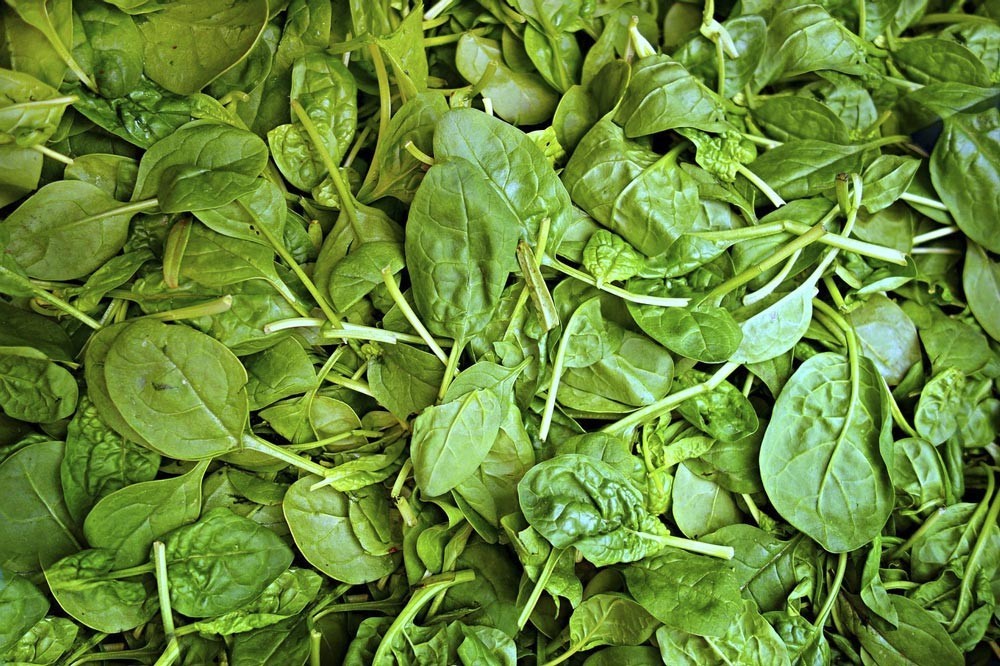
Iron can be found in numerous foods such as:
- Meat (particularly liver)
- Beans
- Wholegrains
- Soy bean flour
- Dark green vegetables such as curly kale and spinach
- Nuts
- Dried fruit
How Much Do I Need?
According to the Government, the amount of iron adults aged 19 to 64 need a day is:
- 8.7 mg a day for men
- 14.8 mg a day for women (aged 19 - 50), 8.7mg a day for women aged 50-64
Other Info:
If you take too much iron (over 20mg) you can suffer from constipation, nausea, vomiting and stomach ache. In children too much iron can be fatal, so keep supplements out of their reach.
Women who suffer from heavy menstrual bleeding are at a higher risk of iron deficiency and may need to consider taking iron supplements.
Symptoms of anemia:
- Fatigue
- Shortness of breath
- Heart palpitations
- Pale skin
You should consult your doctor if you believe that you may be suffering from anemia
LANDYS RECOMMENDS:
- BetterYou: Iron Daily Oral Spray 25ml
- Nature's Plus: Hema-plex Vegicaps 60
- Viridian: Balanced Iron Complex Veg Caps 90
FURTHER INFORMATION:
Learn more about how to spot an iron deficiency and treat it in our article: Iron Deficiency: Symptoms, Causes & How To Treat It
MAGNESIUM
What Is It?
Magnesium is a mineral that helps our bodies convert our food into energy. It also helps our parathyroid glands work properly. These are important for the production of hormones that contribute to healthy bones
Where Does It Come From?
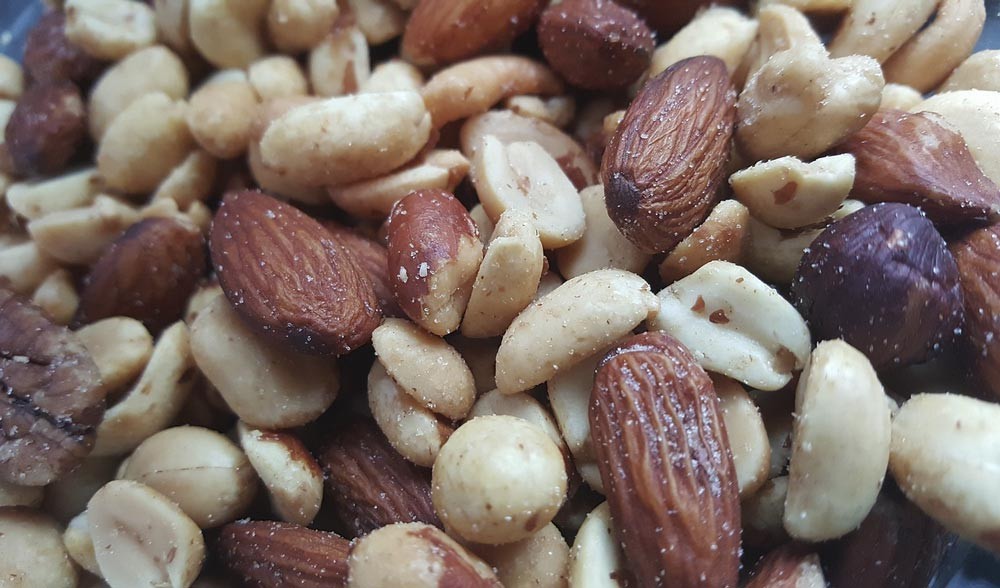
We get magnesium from our daily diet, particularly:
- Spinach and green, leafy vegetables
- Brown rice
- Nuts
- Wholegrain bread
- Fish
- Meat
- Dairy produce
How Much Do I Need?
According to the Government, the amount of magnesium adults need is:
- 300 mg a day for men
- 270mg a day women
The amount of magnesium that we need changes throughout our lifetime, use the government’s dietary recommendations to get it right for you and your family
Other Info:
Too much magnesium over a short period can cause diarrhoea. There is not enough evidence to detail what its long term effects can be, so be careful not to exceed 400mg per day if you are taking magnesium supplements.
LANDYS RECOMMENDS:
READ MORE :
Magnesium supplements can help with many conditions such as ADHD and anxiety. Read all about how in: Benefits Of Calcium, Magnesium & Zinc
PHOSPHORUS
What Is It?
Phosphorous is a mineral that is essential for human life. It helps us release energy from our food and to build strong teeth and bones.
Where Does It Come From?

We get phosphorus from our daily diet, particularly:
- Poultry
- Brown rice
- Oats
- Fish
- Red meat
- Dairy produce
How Much Do I Need?
According to the Government, the amount of phosphorus we need changes throughout our life, but the amount adults between the ages of 19-64 need is:
- 550 mg a day for men and women
Other Info:
You shouldn’t take more than 250mg a day of phosphorus on top of your daily intake as taking too high a dose over a short period can cause diarrhoea and stomach ache. In the long term it can create a build up of calcium deposits, meaning that bones become more fragile and are more likely to break.
LANDYS RECOMMENDS:
FURTHER INFORMATION:
You can learn all about why phosphates are important in the body in: Why You Should Care About Phosphates In Your Body
POTASSIUM
What Is It?
The mineral potassium helps to regulate our body fluid, nervous system and muscle contraction.
Where Does It Come From?
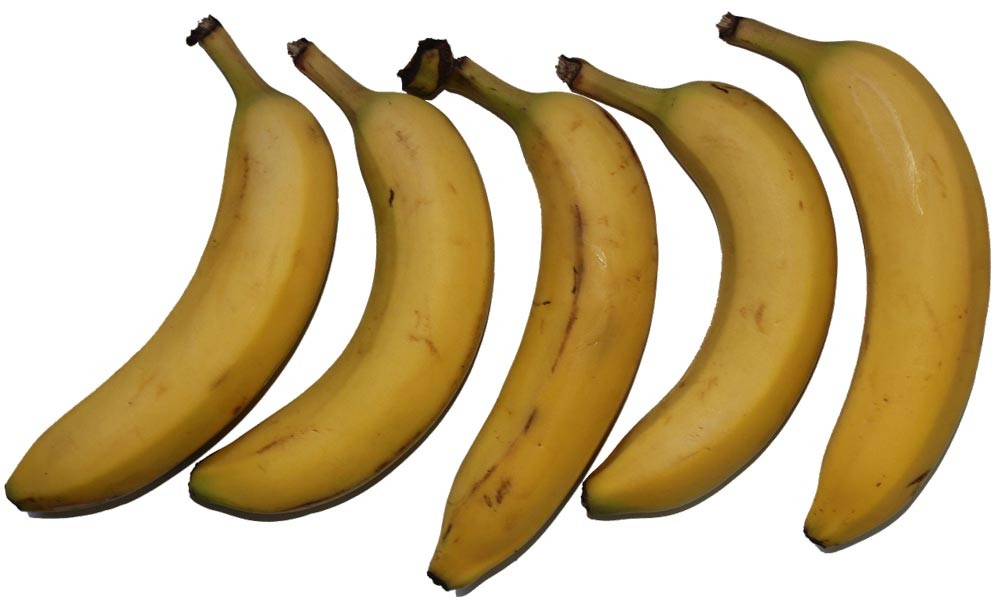
We get potassium from our daily diet, particularly:
- Fruit (namely bananas)
- Broccoli, parsnips, brussels sprouts
- Shellfish
- Fish
- Pulses
- Poultry
- Beef
How Much Do I Need?
According to the Government, the amount of potassium we need changes throughout our life, but the amount adults between the ages of 19-64 need is:
- 3500 mg a day for men and women
Other Info:
You shouldn’t take more than 3700mg a day of potassium supplements on top of your daily intake as taking too high a dose over a short period can cause diarrhoea, nausea and stomach ache. Older people in particular should be careful of their potassium intake as their kidneys tend to be less able to remove potassium from the blood which can cause build ups of calcium, making your bones weaker. This also applies to people with poor kidney function.
LANDYS RECOMMENDS:
- Viridian: Potassium Magnesium Citrate Veg Caps 90
- Solgar: Potassium Tablets 100
- BioCare: Potassium Citrate Vegicaps 90
FURTHER INFORMATION:
Read more about how to avoid a potassium deficiency and choose the right supplement for your diet in: How To Prevent Hypokalemia & Choose The Right Potassium Supplements
SELENIUM
What Is It?
The mineral selenium is important to the body’s immune and reproductive system as well as helping to protect from cell and tissue damage.
Where Does It Come From?
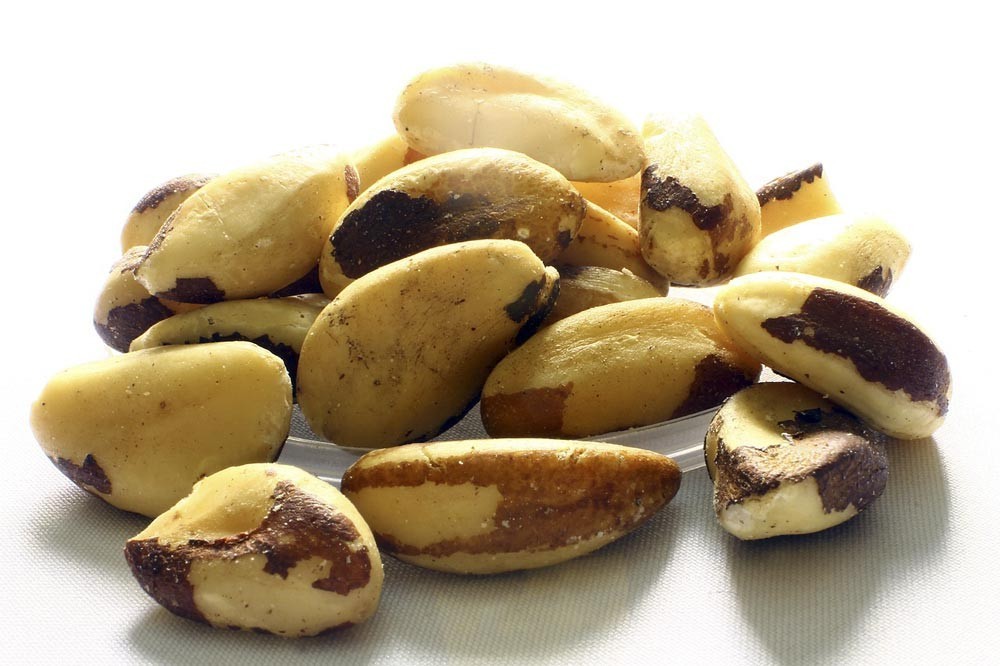
Selenium is present in our daily diet, particularly in:
- Brazil nuts
- Fish
- Meat
- Eggs
How Much Do I Need?
According to the Government, the amount of selenium we need changes throughout our life, but the amount adults between the ages of 19-64 need is:
- 0.075 mg a day for men
- 0.060 mg a day for women
Other Info:
In America high intake of selenium was discovered to affect livestock during the 1930s. Whilst the research into the effect on humans is inconclusive it is advised that you shouldn’t take more than 0.35mg a day of selenium supplements on top of your daily intake as taking too high a dose can cause selenosis - which, in its mildest form causes loss of hair, skin and nails.
LANDYS RECOMMENDS:
- Pharma Nord: Bio-Selenium + Zinc (+Vit C, E and B6) Tabs 90
- Solgar: Selenium 200ug (Yeast Free) Tabs 250
- Terranova: Selenium 200ug Complex Vegicaps 100
FURTHER INFORMATION:
You can learn more about the impact of Selenium on your immune and reproductive systems in our article: Selenium: The Important & Unexpected Ways It Impacts Your Health
ZINC
What Is It?
Zinc is a mineral important to the body’s processes breaking down carbohydrate, fat and protein in food. It also plays a key role in making new cells and enzymes, which also makes it crucial to healing wounds.
Where Does It Come From?
You can find sources of zinc in:
- Shellfish
- Bread
- Meat
- Dairy products
- Cereal products
How Much Do I Need?
According to the Government, the amount of zinc we need changes throughout our life, but the amount adults between the ages of 19-64 need is:
- 9.5 mg a day for men
- 7 mg a day for women
Other Info:
You shouldn’t take more than 25mg a day of zinc supplements on top of your dietary intake. This is because too much zinc can affect the body’s ability to absorb copper. Copper plays a crucial role in enabling iron to release hemoglobin - if oxygen isn’t getting around the body properly this can cause anaemia and weakened bones.
LANDYS RECOMMENDS:
- Solaray: Zinc AivMelt 5mg Lozenges Lemon 60
- BioCare: Nutrisorb Zinc Plus Ascorbate 30ml
- Lamberts: Zinc 25mg Tablets 120
READ MORE:
Read all about how zinc can be used to help deal with a a plethora of conditions, including as a valuable booster to your immune system, in: Benefits Of Calcium, Magnesium & Zinc
If you have a specific concern about any of the minerals that we mention above, get in touch with us, or pop into your local pharmacy to discuss your specific symptoms and needs.
Disclaimer
The products offered are not intended to diagnose, treat, cure, or prevent any illness or disease, or to replace the advice of a medical professional. Results are not guaranteed and may vary from individual to individual.



